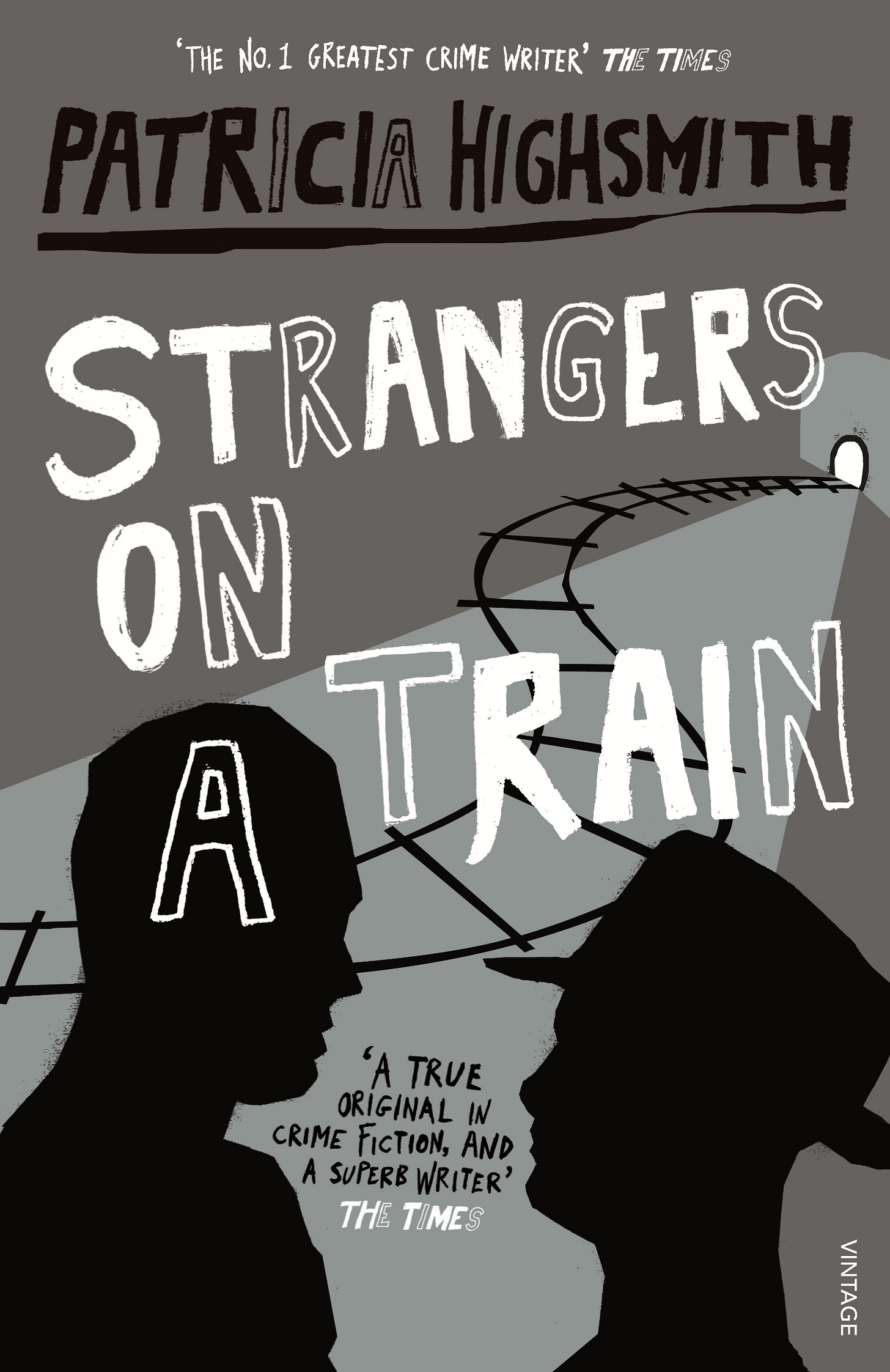Patricia Highsmith was essentially unknown to me until I recently discovered that The Talented Mr Ripley was based off a book and that she wrote it. Rather than start at the obvious place, like the book the adaptation’s based on, I just picked up whatever was available at the library.
As it turns out, it was her first novel, which was also adapted into a movie. The director was Alfred Hitchcock. This may give you some insight into how well known and well regarded her work was. And if you scratch just a bit deeper, you’ll discover that much of her work has been adapted.
The novel begins rather simply with two men meeting on a train. Guy Haines, an architect with a promising career on his way to work out a divorce with his wife, meets Charles Anthony Bruno, the disaffected and angry scion to a wealthy New York family. Guy is somewhat fascinated by Bruno, who seems to be able to peer into him and know him.
Bruno, too, sees a kindred spirit. Or at least one sympathetic to him and his plight.
And what is his plight?
Well, he sure does hate his dad! And his mom sure is annoying!
But Bruno, after several drinks on the train, pitches an idea to Guy:
I’ll murder your wife if you murder my dad.
In Bruno’s conception, this is a perfect crime because there’s nothing to connect the two of them to one another. Both crimes would be without motive to an outside observer and there would therefore also be no traceable line connecting one another to each other’s crime.
Guy doesn’t entirely take this seriously.
Thus and so, these two men become tangled together. Bruno, as it turns out, is quite unhinged and takes this idea very seriously, which forces Guy into a trap of sorts, especially as he plans his new wedding.
Highsmith is playing on feelings of shame and terror and this very simple and somewhat absurd premise twists into a wild psychological thriller where a very normal man becomes entrapped in a terrifying game that threatens not only to ruin his life but to send him to prison. Rightly or wrongly, he begins to think that the only way to escape Bruno is to fulfil his side of the bargain by killing Bruno’s father.
There’s a bit of Dostoevsky here. Crime and Punishment, if you get me. We even see this in the detective who begins trailing both Guy and Bruno, setting them increasingly on edge. He’s not entirely Porfiry Petrovich, but he’s not entirely not Porfiry Petrovitch. We also see this with Anne, Guy’s fiancée and then wife, who holds the role of Sonya, at least a bit, in this novel. There are reflections here is what I mean.
Guy sees salvation through Anne, just as he feels the law’s noose tighten around him through Detective Hennessey’s psychological games.
But what sticks out to me most in this novel is the aspect of obsession.
In many ways I felt as if I was reading a romance gone horribly wrong. Bruno doesn’t just simply see a kindred spirit in Guy. Guy becomes the fulcrum of his very existence. The obsessiveness, the jealousy, the clinging turns savage and terrifying.
But, if the wheel had been turned just a few degrees, we’d have a romance between the two men.
And I think that’s what makes this novel feel fresh, even 74 years later. Because this novel does feel as if it could have been published today and lost nothing of its power or its ability to unsettle you, to gnaw at you.
It’s been burbling within me for the last few weeks. This clawing nature. Love and hate, hope and fear, spite and desire.
It’s nothing new to say that every romantic comedy would be different if the object of desire was creeped out by the chaser. This has even been explored in many movies and even songs. And I think there’s something very real here: the thin line between love and fear.
I met my wife in Nice, France over a weekend. I took a great leap and spent all my money to fly back to France a few weeks later to see her again.
Imagine if my wife had not been interested in my return?
Is there anything more terrifying than a man flying a continent away to see someone who doesn’t want to see them?
The grander the romantic gesture, the closer it may appear to derangement.
Strangers on a Train is a fascinating exploration of morality, of love, of desire, and the price of our choices.
It’s existential in a way that remains vibrant and powerful. Philosophical without being overbearing.
But it is this aspect that makes it churn inside me. Guy and Bruno, almost lovers, almost love, but, instead, something more like horror, like the gates of hell locking them in.
And so I’ll be checking these out in the months and weeks ahead. There’s no set schedule, but I imagine I’ll read a handful before the year’s out.





I really love your point that romance and horror share many features, and that what distinguishes them is how the beloved feels about the grand gestures by the lover.
I’m assuming you’ve seen the Hitchcock film? Robert Walker’s performance as Bruno is one of the best portrayals of a psychopath I have ever seen—initially charming and attractive, and then ruthless and terrifying.
I have never made a connection before between Dostoevsky and Strangers. It is fascinating to think about. I can only go by the movie though. Never read the book.